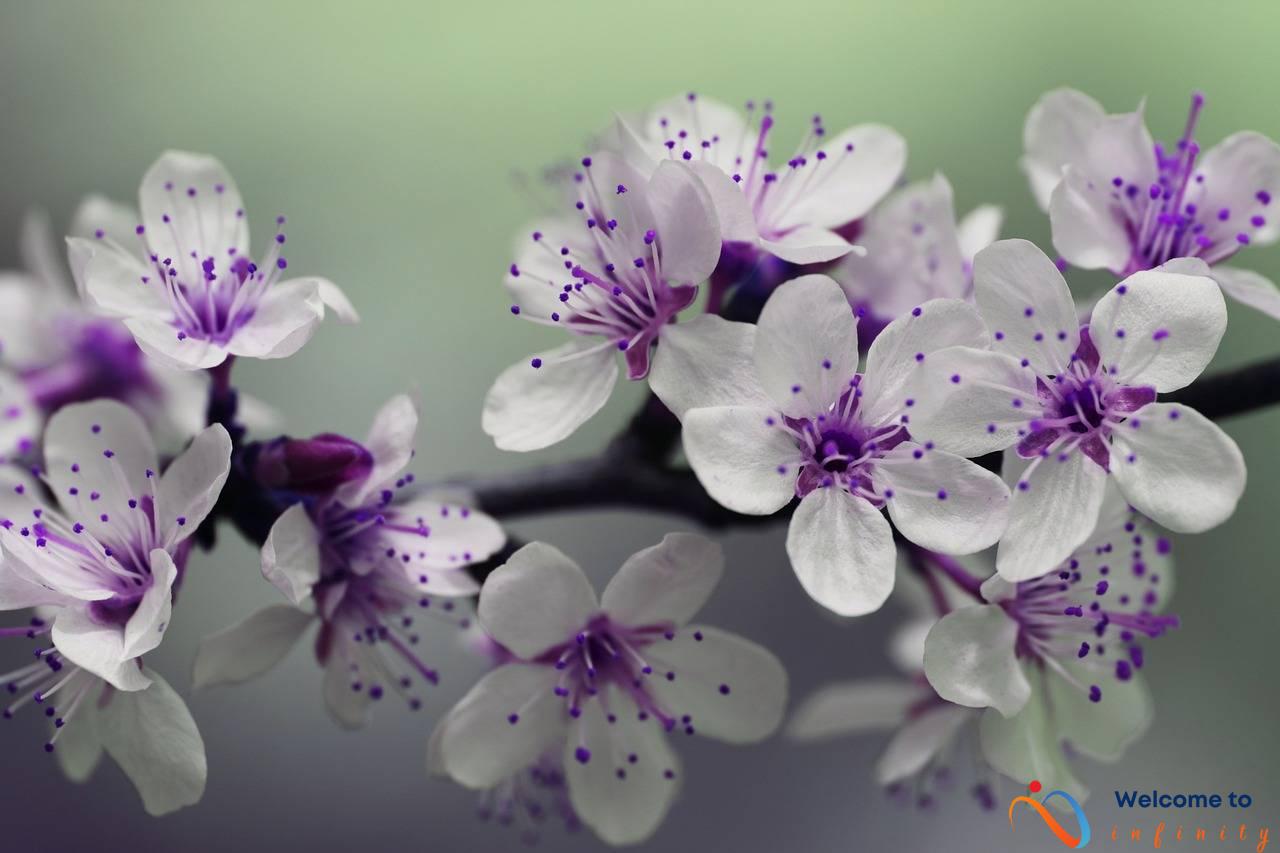Clean beauty is becoming more and more popular nowadays, and for good reason – it prioritizes natural, non-toxic ingredients in beauty products. But with so many buzzwords floating around the industry, it can be difficult to know what clean beauty really means, and how to identify harmful ingredients in your skincare and makeup. In this article, we'll give you a crash course in clean beauty and help you understand how to decode commonly used ingredients on product labels
Essentially, clean beauty products are free from harmful chemicals and toxins that can negatively impact your health and the environment. This includes ingredients such as parabens and sulfates, which have been linked to allergies, irritation, and even cancer. By contrast, clean beauty products use ingredients that are natural, safe, and effective.
To identify harmful ingredients in your beauty products, it's important to know what to look for. Here are a few commonly used “dirty” ingredients:
- Parabens: these are used as preservatives in many beauty products, but have been linked to hormonal imbalances and skin irritation
- Sulfates: these are commonly found in shampoo and body wash, and can strip the skin and hair of natural oils, leading to dryness and irritation
Now that you know what to avoid, what are some clean ingredients to look for? Here are a few examples:
- Coconut oil: this natural oil is rich in antioxidants and has many benefits for both skin and hair
- Shea butter: another moisturizing ingredient that's great for dry skin and hair
- Green tea extract: this ingredient is packed with vitamins and antioxidants, and can have a calming effect on the skin
When it comes to reading product labels, it's important to keep an eye out for certain keywords. Look for products that are labeled “all-natural,” “organic,” or “cruelty-free” – these are likely to be clean beauty products. Additionally, try to avoid products with long lists of unpronounceable ingredients – simpler is usually better.
By learning about the basics of clean beauty and how to read product labels, you can make informed choices that are healthier for your body and the planet.
What is Clean Beauty?
Clean beauty is a term used to describe products that are made with safe, non-toxic, and natural ingredients. These products are free from harmful chemicals, synthetic fragrances, and other harmful substances that can cause irritation, allergies, and even hormonal disruptions. The goal of clean beauty is to provide products that are both effective and safe for use on all skin types, without causing any negative health effects.
The importance of clean beauty lies in the fact that many conventional beauty products that contain harmful ingredients can cause long-term damage to our skin and overall health. Many of these harmful ingredients can be easily absorbed by the skin and can cause allergic reactions, skin irritation, and even cancer. By using clean beauty products, you reduce the risk of these harmful side effects and enjoy healthier, more radiant skin.
- High-quality, non-toxic ingredients: Clean beauty products use high-quality, non-toxic ingredients, such as natural oils, extracts, and antioxidants that are safe to use on all skin types and provide amazing results.
- Sustainable and eco-friendly: Clean beauty products are often made using sustainable and eco-friendly methods, which is better for both your skin and the environment.
- Cruelty-free: Many clean beauty products are also cruelty-free, meaning they are not tested on animals and are therefore more ethical.
By choosing clean beauty products, you are making a conscious effort to avoid harmful chemicals and support brands that are environmentally and ethically conscious. To find out if a product falls under the clean beauty category, look for labels that indicate cruelty-free, organic, and non-toxic ingredients.
Commonly UsedDirty Ingredients
When it comes to skincare and makeup products, not all ingredients are created equal. In fact, many commonly-used ingredients in these products can be harmful to your skin and overall health. As a savvy consumer, it's important to familiarize yourself with these “dirty” ingredients so you can choose products that are safe and healthy for your body.
Some of the most commonly found dirty ingredients in skincare and makeup products include parabens, sulfates, formaldehyde, phthalates, and synthetic fragrances. These ingredients have been linked to various health concerns such as hormonal disruptions, skin irritation and aging, and even cancer.
It's important to note that not all dirty ingredients have been scientifically proven to be harmful, but many people choose to avoid them as a precaution. When browsing products in stores or online, be sure to check the ingredient label and do your research to determine which ingredients to avoid.
Avoiding dirty ingredients in your skincare and makeup products can be challenging at first, but making the switch to clean beauty is worth it in the long run. By choosing products with natural and safe ingredients, you'll be doing your body a favor and helping to protect your overall health and well-being.
Dirty
In the cosmetics industry, many ingredients are commonly used that are actually harmful to our skin and overall health. These ingredients have been dubbed “dirty,” and it's important to know what to look for in order to avoid them.
One of these harmful ingredients is parabens. These are synthetic preservatives that are used to prevent the growth of bacteria in cosmetics. While they may be effective at preserving the product, they also have been shown to disrupt hormone function, which can lead to serious health problems.
Sulfates are another example of a dirty ingredient. These are commonly found in shampoos, body washes, and cleansers, and are used to create that foamy lather we all love. While they may leave us feeling clean, they also strip the skin and hair of its natural oils, causing dryness and irritation.
Other dirty ingredients that you should be aware of include formaldehyde, phthalates, and petroleum. These ingredients have all been linked to a variety of health issues, including cancer and reproductive problems.
To ensure that you're not exposing yourself to these harmful ingredients, it's important to read labels carefully and choose products that use natural and safe alternatives instead.
- Look for products that use natural preservatives, like vitamin E and rosemary extract, in place of parabens.
- Choose sulfate-free products, especially if you have sensitive skin or hair.
- Avoid products that contain formaldehyde, phthalates, and petroleum-based ingredients.
By being aware of what's in your cosmetic products and choosing clean alternatives, you can help to protect your health and maintain a glowing complexion.
Ingredients
As consumers, we often trust that the products we use on our skin and hair are safe and free from harmful chemicals. However, many skincare and makeup products contain ingredients that can do more harm than good. Here are some of the most commonly used dirty ingredients in skincare and makeup:
Parabens are a type of preservative used in skincare and makeup products to extend their shelf life. However, studies have shown that parabens can mimic estrogen in the body, disrupting the endocrine system and potentially leading to breast cancer. Common types of parabens found in products include methylparaben, propylparaben, and butylparaben.
| Type of Paraben | Products It Is Typically Found In |
|---|---|
| Methylparaben | Shampoos, body washes, facial cleansers |
| Propylparaben | Body lotions, sunscreens, deodorants |
| Butylparaben | Facial moisturizers, mascaras, eyeliners |
Fortunately, there are alternative natural preservatives that can be used in products to replace parabens, such as tea tree oil, grapefruit seed extract, and vitamin E.
Sulfates are commonly found in shampoos and body washes as a foaming agent. However, they can strip the skin and hair of their natural oils, leading to dryness and irritation. Common types of sulfates found in products include sodium lauryl sulfate (SLS) and sodium laureth sulfate (SLES).
| Type of Sulfate | Products It Is Typically Found In |
|---|---|
| Sodium Lauryl Sulfate (SLS) | Shampoos, body washes, toothpaste |
| Sodium Laureth Sulfate (SLES) | Facial cleansers, body washes, bubble baths |
Natural ingredients like aloe vera, chamomile, and honey can be used as alternatives to sulfates in products.
When shopping for skincare and makeup products, always read the labels and look out for these harmful ingredients. By choosing clean beauty products with natural and effective ingredients, you'll be doing your skin and body a favor in the long run.
Parabens
Parabens are synthetic preservatives commonly used in skincare and makeup products to extend their shelf life. However, they have been found to mimic estrogen and disrupt hormonal balance in the body. Studies have also linked parabens to breast cancer, as they have been found in breast cancer tumors. Parabens can cause skin irritation, dryness, and allergic reactions. If you have sensitive skin, it is best to avoid products containing parabens.
Many companies use a combination of different types of parabens in their products. Some commonly used parabens include methylparaben, ethylparaben, propylparaben, and butylparaben. These can be found in a range of products, including shampoos, conditioners, moisturizers, sunscreen, and makeup.
Fortunately, there are natural preservatives that can replace parabens in products. These include grapefruit seed extract, rosemary extract, and vitamin E. These natural alternatives also have additional benefits for healthy skin, making them a popular choice in clean beauty products. When choosing skincare or makeup products, it is important to read the label carefully and check for the presence of parabens.
Types of Parabens
Parabens are commonly used preservatives in skincare and makeup products, but they have been linked to hormone disruption and other potential health risks. Here are the different types of parabens to look out for:
| Paraben | Commonly Found In |
|---|---|
| Methylparaben | Shampoos, conditioners, lotions, and sunscreen |
| Propylparaben | Shampoos, conditioners, lotions, and makeup products |
| Butylparaben | Moisturizers, creams, and personal lubricants |
| Ethylparaben | Creams, lotions, and makeup products |
It's important to check the labels of your skincare and makeup products for these parabens and consider using alternatives to avoid potential health risks.
Alternatives to Parabens
Parabens are commonly used preservatives in skincare and makeup products, but they have been linked to various health concerns such as disruption of hormone function and potential cancer risks. If you want to avoid using products with parabens, there are natural preservatives that you can look for instead.
Some examples of natural preservatives that can replace parabens in products include:
- Phytic acid: derived from rice bran and known for its anti-inflammatory and antioxidant properties.
- Vitamin E: a powerful antioxidant that can prevent the oxidation of natural oils and increase their shelf life.
- Rosemary extract: a natural plant extract that is antimicrobial and has strong antioxidant properties.
- Essential oils: natural plant extracts that have anti-inflammatory and antibacterial properties, such as tea tree oil and eucalyptus oil.
When looking for clean beauty products without parabens, be sure to check the ingredients list for these natural preservatives instead. Additionally, products that have a shorter shelf life and fewer ingredients are likely to have fewer preservatives and additives, making them a more natural choice.
Sulfates
Sulfates are a type of surfactant commonly found in shampoos, body washes, and facial cleansers. They help to create a lather that removes dirt and oil from the skin and hair. However, sulfates can be harmful and cause damage to both skin and hair.
Sulfates strip away natural oils from the skin and hair, causing them to become dry and brittle. This can lead to irritation, itching, and flaking. Sulfates can also irritate the eyes and cause allergic reactions in some people.
There are different types of sulfates such as sodium lauryl sulfate (SLS) and sodium laureth sulfate (SLES). These are often found in products that produce a lot of foam, such as body washes and shampoos. They can be particularly damaging to hair, causing it to become dull, dry, and prone to breakage.
If you want to avoid sulfates in your skincare and haircare routine, look for products that are sulfate-free. Instead, choose gentler, natural ingredients that are less likely to cause irritation or damage. Some examples of natural alternatives to sulfates include coconut oil, aloe vera, and chamomile.
It's important to read product labels carefully and do your research before purchasing any skincare or haircare products. Look out for ingredients like sodium lauryl sulfate, sodium laureth sulfate, and ammonium lauryl sulfate, which are all types of sulfates. Instead, try to choose sulfate-free options that will be gentler on your skin and hair.
Types of Sulfates
Sulfates are a common ingredient found in many skincare and hair care products, but it's important to recognize the different types of sulfates and their potential harm to your health. The two most commonly used sulfates in products are Sodium Lauryl Sulfate (SLS) and Sodium Laureth Sulfate (SLES).
SLS is a harsh detergent that can strip the skin and hair of their natural oils, leading to dryness and irritation. It's commonly found in shampoos, body washes, and toothpaste. On the other hand, SLES is a milder form of sulfate and is often used in products like facial cleansers and bubble bath because it produces a rich, foamy lather.
It's important to note that not all sulfates are harmful and some can even be beneficial to your hair and skin. For example, Sodium Lauryl Sulfoacetate (SLSA) is a gentler alternative to SLS and can be found in many natural and organic products. Ammonium Lauryl Sulfate (ALS) and Ammonium Laureth Sulfate (ALES) are also milder alternatives to SLS and SLES that can be used in shampoos and body washes.
When searching for clean beauty products, it's important to read the labels and look for products that are sulfate-free or contain mild sulfates like SLSA, ALS, and ALES. Additionally, you can opt for natural ingredients like coconut oil and aloe vera that provide gentle cleansing without causing harm to your skin and hair. By understanding the different types of sulfates and their potential harm, you can make informed decisions and choose products that work best for your individual needs and preferences.
Alternatives to Sulfates
If you're looking to clean up your beauty routine, it's important to steer clear of sulfates. Luckily, there are plenty of natural ingredients that can provide the same cleansing benefits. Here are a few alternatives to consider:
1. Castile soap: Made from olive oil, castile soap is gentle and effective at cleaning skin and hair without stripping away natural oils.
2. Aloe vera: Aloe vera is a natural anti-inflammatory and can help soothe irritated skin. It also has cleansing properties, making it a great alternative to sulfates.
3. Honey: Raw honey has antibacterial properties and can help cleanse skin without drying it out. It's also moisturizing, making it a great option for those with dry or sensitive skin.
4. Apple cider vinegar: Apple cider vinegar can help to restore the pH balance of your skin and scalp. It also has natural cleansing properties and can help remove buildup from hair.
5. Coconut milk: Coconut milk is rich in fatty acids that can help moisturize and condition your skin and hair. It's also a great natural alternative to sulfates.
When shopping for clean beauty products, look for these ingredients in place of sulfates. It's also a good idea to avoid products that contain synthetic fragrances, which can be irritating to sensitive skin. Opt for products that use essential oils instead. By making small changes to your beauty routine, you can enjoy the benefits of clean, natural ingredients without sacrificing effectiveness.
Commonly UsedDirty Ingredients
When it comes to skincare and makeup products, not all ingredients are created equal. In fact, many commonly used ingredients can be harmful to our skin and health. It's important to be able to recognize these dirty ingredients so that we can make informed decisions when choosing our beauty products. Here are a few ingredients to keep an eye out for:
- Parabens: These are preservatives commonly used in skincare and makeup products to extend their shelf life. However, studies have shown that parabens can mimic estrogen in the body and disrupt hormone function. They have also been linked to breast cancer and reproductive issues.
- Sulfates: Sulfates are harsh detergents often used in shampoo and body wash to create foam and lather. However, they can strip the skin and hair of its natural oils, leading to dryness and irritation. Sulfates can also be contaminated with carcinogenic byproducts called nitrosamines.
- Phthalates: These are plasticizers commonly used in fragrances to make them last longer. However, they are also endocrine disruptors and have been linked to developmental and reproductive issues.
- Triclosan: This is an antimicrobial agent often used in soaps and hand sanitizer. However, it has been linked to bacterial resistance and can disrupt hormone function in the body.
It's important to read the labels of your skincare and makeup products carefully to avoid these harmful ingredients. Look for products that are labeled “paraben-free,” “sulfate-free,” or “phthalate-free.” By choosing clean beauty products, you can support your health and the health of the planet.
CleanBeauty 101: Understanding Ingredients
With the increasing trend towards living a healthier lifestyle, a growing number of people are paying attention to the beauty products they use. In recent years, clean beauty has emerged as a buzzword, but what does it mean? In simple terms, clean beauty products are those that are made without the use of harmful or toxic chemicals. In this article, we'll take a closer look at what clean beauty is, the commonly used dirty ingredients to avoid, and the natural and effective ingredients often used in clean products.
Clean beauty is more than a passing fad – it's a movement that's changing the beauty industry for the better. It's about using products that are good for your skin, body, and the environment. Clean beauty involves using natural and organic ingredients rather than harsh chemicals, toxins, and synthetic fragrances. By using clean beauty products, you can avoid exposure to harmful chemicals that can cause cancer, hormone disruption, and other health concerns.
Unfortunately, many skincare and makeup products on the market today contain harmful ingredients that have been linked to health problems. Here are some of the most common dirty ingredients to look out for:
| Ingredient | Concerns | Products Found In |
|---|---|---|
| Parabens | Endocrine disruption, reproductive toxicity, skin irritation | Moisturizers, makeup, hair care |
| Sulfates | Skin irritation, hair and scalp damage, eye irritation | Shampoos, body washes, facial cleansers |
| Phthalates | Hormone disruption, birth defects, infertility, skin irritation | Fragrances, nail polish, hair products |
Parabens are used as preservatives in many beauty products. They are absorbed through the skin and have been detected in breast cancer tumors. Parabens have also been linked to skin irritation and contact dermatitis. Here are some of the different types of parabens and the products they are commonly found in:
| Paraben | Common Products |
|---|---|
| Methylparaben | Moisturizers, makeup, hair care |
| Propylparaben | Facial cleansers, body washes, shampoos |
| Butylparaben | Sunscreens, moisturizers, facial cleansers |
If you want to avoid parabens, look for products that use natural preservatives like grapefruit seed extract, vitamin E, and rosemary extract.
Ingredients
When it comes to clean beauty products, natural and effective ingredients are key. Here are some of the most commonly used natural ingredients in clean beauty products:
- Coconut Oil: This tropical oil is a great moisturizer for both skin and hair. It contains fatty acids that nourish and hydrate, making it a popular ingredient in many clean beauty products.
- Shea Butter: Made from the nuts of the shea tree, this powerful ingredient is rich in vitamins and fatty acids. It deeply hydrates and moisturizes, making it perfect for dry and sensitive skin.
- Green Tea Extract: This antioxidant-rich extract is great for reducing inflammation and protecting the skin from damage caused by free radicals. It also contains caffeine, which can help to tighten and firm the skin.
- Aloe Vera: Known for its soothing properties, aloe vera is a great ingredient for calming and hydrating the skin. It also contains vitamins and minerals, making it a popular ingredient in many clean beauty products.
- Jojoba Oil: This oil is very similar in structure to the natural oil produced by our skin, making it a great ingredient for balancing and regulating oil production. It also contains antioxidants and vitamins, making it a popular ingredient in many clean beauty products.
When choosing clean beauty products, be sure to look for these natural ingredients on the label. They are not only effective, but they are also gentle on your skin and the environment.
Coconut Oil
Coconut oil is one of the most versatile natural ingredients in the world of clean beauty. Not only is it great for cooking, but it also has numerous benefits for your skin and hair. It is full of antioxidants and has antibacterial properties that help to moisturize, nourish, and protect your skin and hair.
When applied to the skin, coconut oil can create a protective barrier that helps to lock in moisture and keep your skin hydrated. It also contains lauric acid, which has antimicrobial properties and helps to fight off bacteria that can cause acne and other skin irritations. Plus, it can help to reduce inflammation and soothe sunburned skin.
Coconut oil is also a great natural conditioner for your hair. It can help to strengthen the hair shaft, prevent breakage, and leave your hair smooth and shiny. It can also help to soothe an itchy and dry scalp and may even promote hair growth.
When looking for clean beauty products that contain coconut oil, make sure to read the ingredient label carefully. Look for products that use high-quality, organic, virgin coconut oil, as this will provide the most benefits for your skin and hair. You can also use pure coconut oil on its own as a moisturizer, hair mask, or makeup remover.
In conclusion, coconut oil is a true hero of clean beauty ingredients that has been used for centuries for its numerous benefits. Incorporating this natural ingredient into your skincare and haircare routine may help to nourish, moisturize, and protect your skin and hair in a safe and natural way.
Shea Butter
Shea butter is a popular ingredient in clean beauty products due to its numerous benefits for skin and hair. It is extracted from the nuts of the shea tree and is known for its moisturizing and healing properties.
One of the main benefits of shea butter is its ability to deeply moisturize the skin. It contains high levels of fatty acids and vitamins that nourish and hydrate the skin, leaving it soft and supple. Shea butter is particularly beneficial for dry and sensitive skin as it helps to alleviate itching, redness, and flakiness.
Shea butter is also a great ingredient for promoting healthy hair. It helps to moisturize and strengthen the hair, reducing breakage and split ends. It can also help to soothe an itchy scalp and promote hair growth.
Aside from its moisturizing benefits, shea butter also contains anti-inflammatory and anti-aging properties. It helps to reduce the appearance of fine lines and wrinkles, as well as soothe skin irritations such as eczema and psoriasis.
So, whether you're looking to improve the health of your skin or hair, shea butter is a great ingredient to look out for in your clean beauty products.
Green Tea Extract
Green tea extract is an incredibly beneficial ingredient in skincare products. It contains high levels of antioxidants, specifically epigallocatechin gallate (EGCG), which helps to reduce inflammation and protect the skin from damage caused by free radicals. Additionally, green tea extract can help soothe and calm irritated skin.
One of the most significant benefits of green tea extract for the skin is its anti-aging properties. EGCG helps to prevent collagen breakdown, which is essential for maintaining firm and youthful skin. Collagen is the protein that provides structure to the skin, and as we age, our collagen production decreases, causing wrinkles and fine lines to appear. Including green tea extract in your skincare routine can help slow down this process and keep your skin looking youthful for longer.
Another benefit of green tea extract is its ability to reduce redness and irritation associated with conditions such as acne and rosacea. It has anti-inflammatory properties that can help soothe sensitive skin and prevent future breakouts. Green tea extract also has antibacterial properties, making it effective at reducing acne-causing bacteria and preventing the formation of new blemishes.
If you're looking for a natural ingredient to include in your skincare routine, green tea extract is an excellent choice. It's gentle on the skin and provides numerous benefits, including anti-aging, anti-inflammatory, and antibacterial properties. Look for skincare products that contain green tea extract or consider adding a green tea toner or serum to your routine to see the benefits for yourself.
How to Read Labels and Choose Clean Beauty Products
It's important to understand how to read product labels when choosing clean beauty products. Here are some tips to help you make informed choices:
- Look for products that are labeled “clean” or “natural.” However, be aware that these terms are unregulated and can be misleading.
- Read ingredient lists carefully. The most harmful ingredients are often listed first. If an ingredient sounds unfamiliar, research it before using the product.
- Avoid products that contain parabens, sulfates, phthalates, and synthetic fragrances.
- Choose products that use natural preservatives, such as grapefruit seed extract, rosemary oil, and vitamin E.
- Consider products that use organic or sustainably sourced ingredients.
- If you have sensitive skin, look for products that are labeled “hypoallergenic” or “non-comedogenic.”
When choosing skincare products, pay attention to the skin type the product is designed for. Additionally, some ingredients may have specific benefits for certain skin concerns. For example, if you have dry skin, look for products that contain hyaluronic acid or shea butter. If you have oily skin, look for products that contain salicylic acid or tea tree oil.
With makeup products, pay attention to the product's performance, such as its color payoff and longevity. If you're unsure about a product, read reviews from other customers.
In summary, making informed choices when choosing clean beauty products requires paying attention to labels, ingredient lists, and product performance. By doing so, you can avoid harmful ingredients and choose products that are both effective and safe for your skin.












